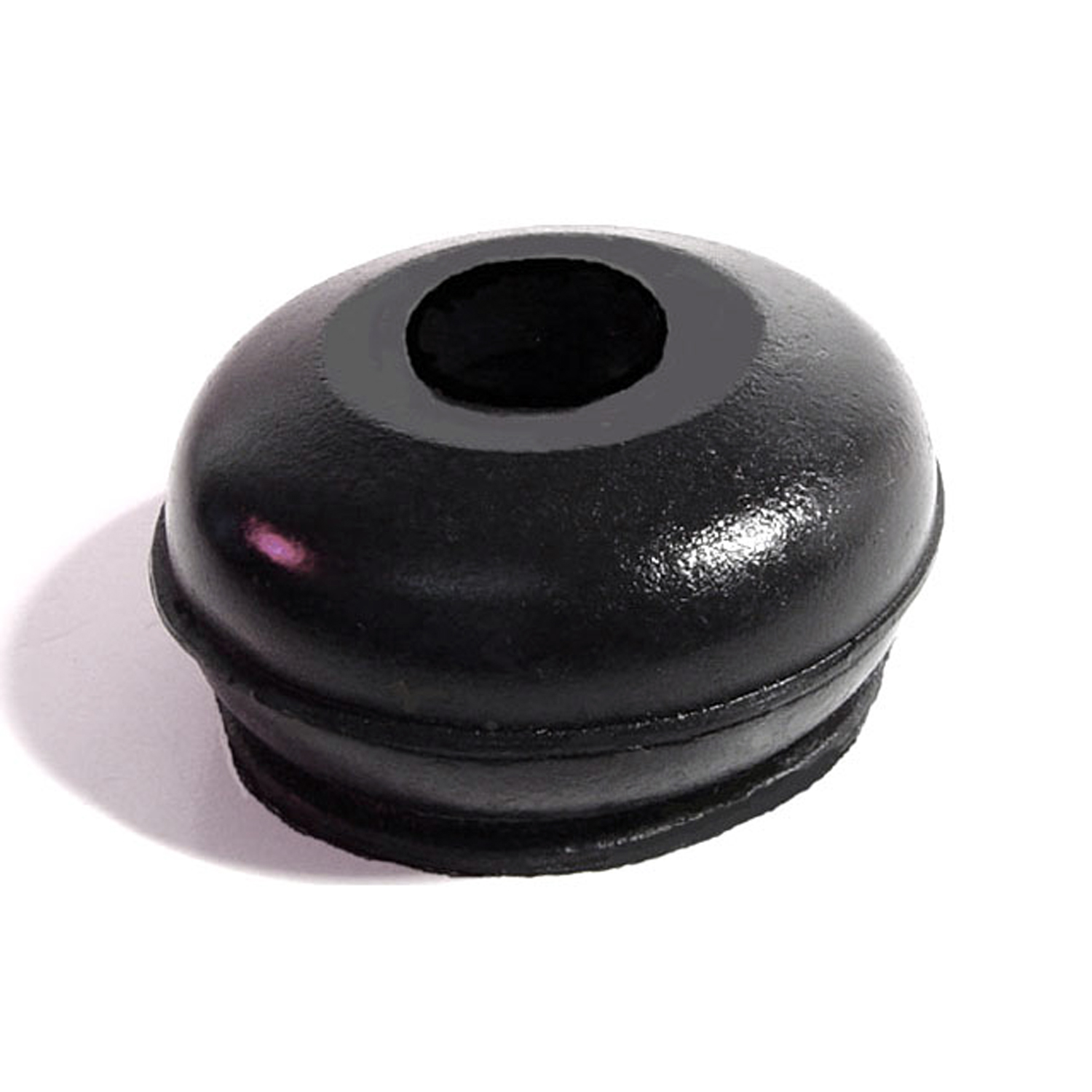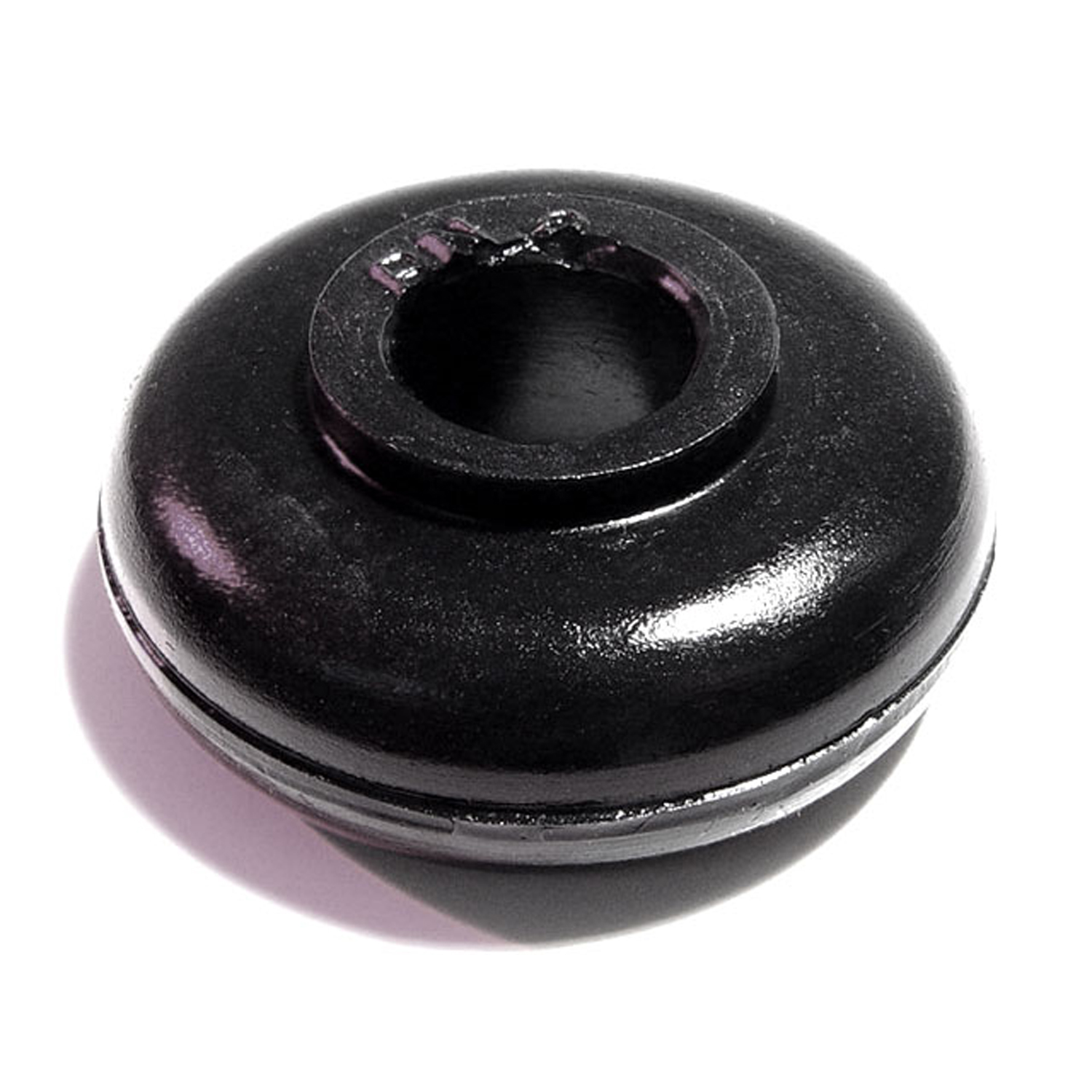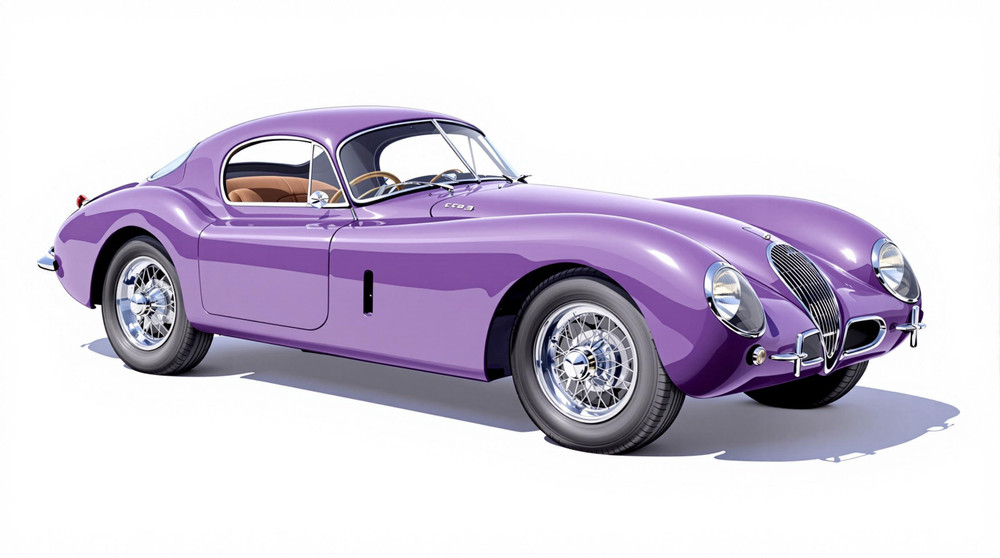Image of 1952 Jaguar C-Type, Note: These illustrations use artistic license and may differ from actual historical models.
Performance Metrics
Fundamental Metrics
Emotional Appeal
MMP Rating
| Engine Specifications | |
|---|---|
| Engine: | 3.4L DOHC Inline 6 |
| Displacement: | 3442 cc |
| Horsepower: | 210-220 HP |
| Torque: | 220 lb-ft |
| Compression Ratio: | 8.0:1 |
| Ignition System: | Twin SU carburetors |
| Cooling System: | Water-cooled |
| Performance Specifications | |
| 0-60 Time: | 8 seconds |
| 1/4 Mile Time: | 16 seconds |
| Top Speed: | 140 mph |
| Transmission and Drive | |
| Drive Type: | Rear-wheel drive |
| Transmission Type: | 4-speed manual |
| Fuel and Efficiency | |
| Fuel System Type: | Carburetor |
| MPG: | 15-20 MPG (estimated) |
| Dimensions and Brakes | |
| Brakes: | Drum brakes |
| Wheelbase: | 96 inches |
| Weight: | 2100 lbs |
Note: Specifications for classic cars are given to the best of our ability, considering the limited and variant data available.
Unveiling the 1952 Jaguar C-Type: A Symphony of Speed and Style
The 1952 Jaguar C-Type not only represents a pinnacle of automotive design but also marks an era where elegance met performance on the racetrack. Born from the loins of Jaguar Cars Ltd., this British sports racing car was conceived with a singular purpose: to conquer the grueling 24 Hours of Le Mans. Its unique fact that sets the stage for intrigue is its pioneering use of aerodynamic design and disc brakes in racing, which helped it clinch victory at Le Mans in 1953.
Design and Innovation: A Leap Forward in Automotive Artistry
The C-Type's exterior styling was a masterclass in form following function. Its fluid, sculptural bodywork, crafted from lightweight aluminum, cut through the air with grace and purpose. Inside, the cockpit was spartan yet functional, with an emphasis on driver comfort and control. Luxurious materials were eschewed in favor of durability and weight savings, but quality was never compromised. Technologically, the C-Type was ahead of its time, featuring an innovative tubular space frame construction and fully independent front suspension. While color options were limited during its production run, the most iconic hue was British Racing Green—a color synonymous with British motorsport heritage. The roadster body style was the only option available, further cementing its status as a purebred racer.
Historical Significance: The C-Type's Enduring Legacy
The Jaguar C-Type's impact on automotive design cannot be overstated. It was one of the first race cars to integrate aerodynamic theories into its bodywork, setting a precedent for future designs. Its introduction of disc brakes revolutionized racing safety and performance, eventually becoming standard in passenger vehicles worldwide. The C-Type's legacy is one of innovation and triumph, influencing generations of sports cars that followed.
Performance and Handling: Engineering Excellence Unleashed
Under the hood lay a robust 3.4-liter inline-six engine that propelled the C-Type to a top speed nearing 140 mph—a remarkable feat for its time—with acceleration from 0-60 mph achieved in just over 7 seconds. On track or open road, handling was precise and responsive; drivers reported a near-telepathic connection with the car as it danced around corners and remained composed over imperfections. The symphonic roar of its powerplant provided an acoustic backdrop that was music to any enthusiast's ears.
Ownership Experience: Beyond the Wheel
While primarily designed for competition, some affluent enthusiasts enjoyed the C-Type as a high-speed tourer or showpiece. Maintenance required a knowledgeable hand—often beyond the scope of an average owner—but reliability was commendable for a vehicle with such racing pedigree. As with many classics, upkeep could be costly but part of the joy for those who appreciated its engineering marvels.
Fun Facts: The C-Type's Place in History
The Jaguar C-Type has graced many collections worldwide, including those of notable celebrities and royalty. It held records for speed and endurance during its heyday and has been featured prominently in films and media celebrating classic motorsport. Criticisms were few but often pointed toward its exclusivity and impracticality for everyday use—a small price to pay for such groundbreaking innovation.
Collector's Information: A Coveted Classic
Today, a 1952 Jaguar C-Type can fetch anywhere from $5 million to over $13 million at auction, depending on provenance and condition—testament to its rarity and desirability among collectors. With only 53 units produced, finding one on the market is akin to unearthing treasure; their values have consistently appreciated over time as enthusiasts recognize their historical importance.
Conclusion: Celebrating Automotive Excellence
The 1952 Jaguar C-Type stands as a testament to a bygone era where beauty and speed were intertwined in perfect harmony. It remains an icon of innovation, performance, and style—a true masterpiece on wheels that continues to captivate the hearts of collectors and racing aficionados alike.
1952 Jaguar C-Type Catalog of Parts
 1952 Jaguar C-Type Upper and Lower Ball Joint Boot. 5/8" upper I.D-BN 101-AUpper and Lower Ball Joint Boot. 5/8" upper I.D., 1-1/2" bottom I.D., 7/8" high. Each
1952 Jaguar C-Type Upper and Lower Ball Joint Boot. 5/8" upper I.D-BN 101-AUpper and Lower Ball Joint Boot. 5/8" upper I.D., 1-1/2" bottom I.D., 7/8" high. Each 1952 Jaguar C-Type Roll Bar Bushing. 1/2" high, with 1/2" hole. Each-BN 2Roll Bar Bushing. 1/2" high, with 1/2" hole. Each
1952 Jaguar C-Type Roll Bar Bushing. 1/2" high, with 1/2" hole. Each-BN 2Roll Bar Bushing. 1/2" high, with 1/2" hole. Each 1952 Jaguar C-Type Spark plug wire boot. Exclusive Metro part-RP 1-KSpark plug wire boot. Exclusive Metro part. Fits on the distributor cap end. Note: looks similar to coil boot, but is physically smaller. Replaces OEM# CO 2609. Each.
1952 Jaguar C-Type Spark plug wire boot. Exclusive Metro part-RP 1-KSpark plug wire boot. Exclusive Metro part. Fits on the distributor cap end. Note: looks similar to coil boot, but is physically smaller. Replaces OEM# CO 2609. Each.Why Choose Metro?
For over 100 years, Metro Moulded Parts has been the pinnacle of quality in classic car restoration parts. Our commitment to precision and authenticity in every component ensures a perfect fit and an OEM-level appearance.
- Expert Craftsmanship & Quality: Each part is a testament to our dedication to reliability and perfection, crafted from original designs and thoroughly tested.
- Advanced Technology: We use cutting-edge techniques to create flawless, long-lasting parts that surpass others in performance.
- SuperSoft Sponge – The Ultimate Door Seal: Not only are our door seals 30% softer than competitors', but they're also guaranteed to never leak. They effectively reduce wind and road noise, enhancing your classic car's comfort and driving experience.
- Proudly American: Our parts are a product of American craftsmanship, made in the USA with a spirit of excellence and heritage.
- Unrivaled Warranty: We back our products with a 30-year industry-leading warranty, a testament to our confidence in their quality.
Join us in preserving the legacy of classic cars with parts that are crafted for perfection, not just made.

